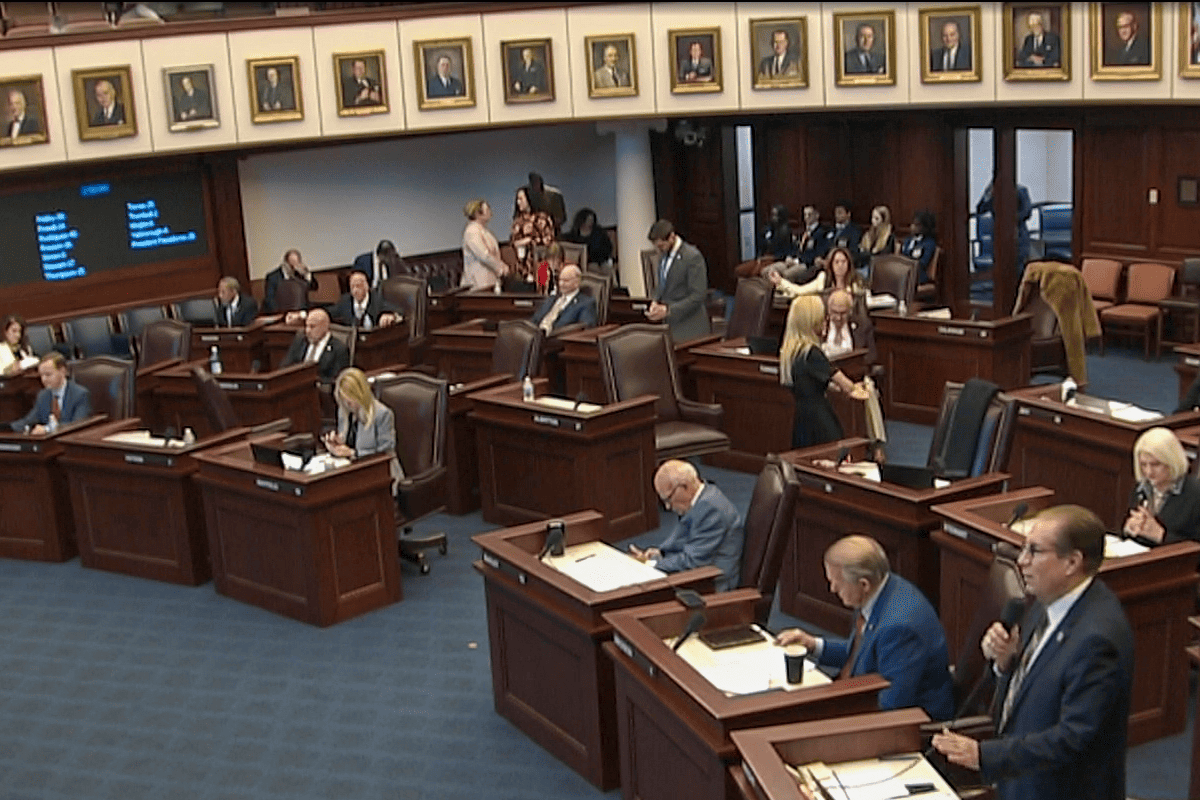Senate passes bills on Everglades protection, Alzheimer’s disease training for law enforcement, more

TALLAHASSEE, Fla. – The Florida Senate passed multiple pieces of legislation Monday, covering the topics of cybersecurity, Everglades protection, law enforcement training on Alzheimer’s disease and related forms of dementia, veterinary telehealth, and the intentional release of balloons.
SB 1364 – Everglades Protection Area
Sen. Alexis Calatayud, R-Miami, sponsored legislation related to the Everglades Protection Area, which she said requires comprehensive plans and amendments covering certain lands within two miles of the Everglades Protection Area to follow the state coordinated review process, rather than the expedited state review process.
The bill passed favorably through the Senate with a 40-0 vote.
The legislation requires that the state review any comprehensive plan that a county or municipality is expected to carry out in or within two miles of the Everglades Protection Area.
The Department of Environmental Protection would be tasked with determining whether the plan would adversely impact the Everglades Protection Area or the Everglades restoration and protection objectives in state law.
The department would have 30 days after receipt of the plan or plan amendment to issue a written determination identifying any adverse impacts.
Rep. Demi Busatta Cabrera, R-Coral Gables, sponsored similar legislation, HB 723, in the House, which passed through the Agriculture, Conservation and Resiliency Subcommittee, so far.
SB 208 – Law Enforcement Training on Alzheimer’s disease
The Senate passed SB 208 with a 40-0 vote, sponsored by Sen. Danny Burgess, R-Zephyrhills. The legislation creates continued employment training for law enforcement and correctional officers on Alzheimer’s disease and related forms of dementia.
The bill requires the Department of Law Enforcement to establish an online, ongoing training program focusing on Alzheimer’s disease and related forms of dementia, which Burgess said would be optional for officers.
The department would be required to consult the Department of Elder Affairs with the training component, under the legislation.
According to the bill, the training component must include, but is not limited to:
- Instruction on interacting with individuals with Alzheimer’s disease or a related form of dementia.
- Instruction on techniques for recognizing behavioral symptoms and characteristics.
- Effective communication.
- Employing the use of alternatives to physical restraints.
- Identifying signs of abuse, neglect, or exploitation.
Completion of the training may count toward the 40 hours of instruction for continued employment, or appointment as a law enforcement officer, correctional officer, or correctional probation officer required under Florida Statute, according to the bill.
Rep. James Buchanan, R-North Port, sponsored identical legislation in the House, HB 801, which passed its third reading on the House floor with a 117-0 vote.
The bill will now be sent to the governor’s desk for final approval.
SB 1040 – Veterinary Telehealth
Sen. Jennifer Bradley, R-Fleming Island, sponsored SB 1040, which would authorize veterinarians to practice veterinary telehealth.
“Florida is a national leader in telemedicine and this bill builds on that and establishes clear parameters for veterinary telemedicine in Florida,” Bradley said.
According to the bill, veterinary telehealth uses telecommunications technology by a telehealth provider to provide health care services, including, but not limited to:
- Assessment
- Diagnosis
- Consultation
- Treatment
- Monitoring of a patient
- Transfer of medical data
- Patient and professional health-related education
- Public health services
- Health administration
“We really took a lot of input from a lot of folks and we’re at a place now where we can really expand the access to care for Florida’s pets,” Bradley said in closing. “We have a real shortage and a lack of access to care in many parts of the state, and this will allow safe telehealth for vets and help a lot of people.”
Rep. Sam Killebrew, R-Winterhaven, sponsored a comparable bill in the House, HB 849, which passed its third reading on the House floor.
The amended bill now heads back to the House floor for final consideration before heading to the governor for his signature.
SB 602 – Intentional Release of Balloons
SB 602 passed through the Senate floor with a 38-2 vote. Sen. Nick DiCeglie, R-St. Petersburg sponsored the legislation, which provides that the intentional release of balloons would be punishable under the Florida litter law.
The bill would make it so anyone who intentionally releases a single balloon, filled with gas lighter than air, is subject to a noncriminal littering infraction, with a fine of up to $150.
Sen. Lauren Book, D-Davie, questioned if the bill would have an exception for biodegradable balloon releases.
“There was an exception for biodegradable but, because we’re very concerned with with marine animals and the impact of those, any release of balloons is going to be considered litter,” DiCeglie responded.
The original legislation only applied to individuals intentionally releasing 10 or more balloons within a 24 hour time period.
Following an amendment, the bill would it make it so anyone who intentionally releases a single balloon, filled with a gas lighter than air, is subject to the fine.
DiCeglie explained the reason for the amendment was because “one balloon can have a can have a fatal impact” on marine mammals.
The senator explained an added amendment that the penalties under the bill would not apply to children six years of age or under.
“We’ve all been to parties and events where we just, you know, release balloons without thinking twice about it,” DiCeglie said. “There are some consequences to that, whether it’s marine life, whether, you know, it’s cattle in the center part of our state. We’re trying to create some accountability for the release of balloons and it is my belief that this bill will accomplish that.”
Rep. Linda Chaney, R-St. Petersburg, sponsored the similar House version of the bill, HB 321, which passed the House floor with a 114-1 vote.
The amended bill now heads back to the House floor for a final vote before heading to the governor for approval.



